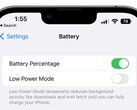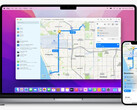Last week, Apple finally took the wraps off the latest version of iOS. iOS 16 will find its way across the company's smartphones back to the iPhone 8 series, while also confirming a parity of sorts with Apple's closest rivals, Samsung.
As it stands, iOS 16 will eventually roll out to all modern iPhone users, from the iPhone 8 and iPhone 8 Plus down to the iPhone 13 series. Sadly, though, iPhone 7 series owners will remain stuck on iOS 15.5. The iPhone 7 series debuted in 2016 running iOS 10 and received five major iOS upgrades in total. Interestingly, the iPhone 6s was released in 2015 and also received iOS 15.5, making for six major upgrades—implying that the iPhone 7 may have gotten the short end of the stick there.
Five major OS upgrades remain an industry-high, however, but there's now little to nothing separating Apple from Samsung in the department. This year, the South Korean company announced that it would be providing four major OS upgrades and five years of security updates to its devices, including the flagship Galaxy S22 series and its mid-range Galaxy A33, A53, and A73 models. Gone are the days when Apple had a massive advantage in software support.
While this is a win for the Android crowd, it's important to note that Samsung remains the only Android OEM to provide support of this sort. Google also promises five years of security updates for the Pixel 6 series, but only three OS upgrades. Xiaomi promises three OS upgrades and four years of security updates for its premium phones, ditto OnePlus.



















